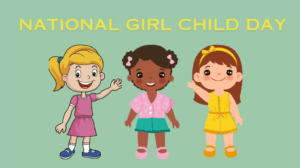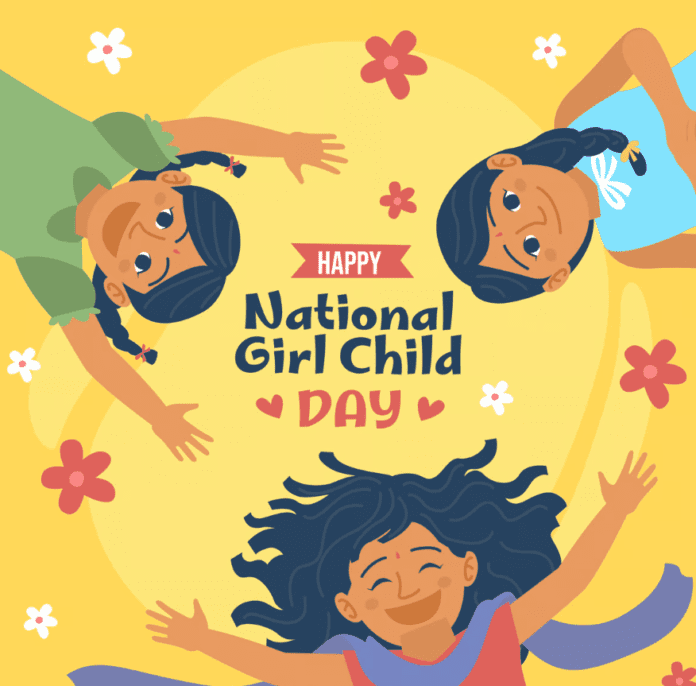National Girl Child Day: Empowering the Future.
3 min read 2024-01-24, 10:20 PM IST
Summary
|

National Girl Child Day is celebrated annually on January 24th in India to raise awareness about the challenges faced by girls and to promote their rights and well-being. This day serves as a reminder to the society about the importance of nurturing and empowering the girl child. It is an opportunity to reflect on the progress made in promoting gender equality and to address the persistent issues that hinder the full development of girls. In this article, we will delve into the significance of National Girl Child Day, the challenges faced by girls, and the initiatives taken to empower them.
ALSO RAED| Modi Govt Raises Sukanya Samriddhi Yojana Rates for 2024 Elections.
Historical Perspective
The roots of National Girl Child Day can be traced back to the global efforts to promote gender equality and women’s rights. The United Nations declared 1975 as the International Women’s Year, marking the beginning of a series of global initiatives to address gender disparities. Over the years, various countries, including India, recognized the need for specific attention to the issues faced by girls.
In India, the birth of a girl child has often been greeted with less enthusiasm compared to the birth of a boy. Deeply ingrained cultural norms and preferences for male heirs have led to the neglect and discrimination of girls in many parts of the country. National Girl Child Day was established to challenge these norms and promote a more inclusive and equitable society.
ALSO READ| International Girl Child Day.
Challenges Faced by Girls
- Gender Discrimination: One of the primary challenges faced by girls is gender discrimination. From a young age, girls may be subjected to biased treatment, limiting their access to education, healthcare, and opportunities for personal and professional growth. Stereotypical gender roles can restrict their aspirations and potential.
- Child Marriage: Child marriage remains a prevalent issue in many parts of the world, including India. Girls are often married off at a young age, depriving them of education and the chance to make decisions about their own lives. This practice perpetuates a cycle of poverty and limits the girl’s ability to reach her full potential.
- Limited Educational Opportunities: Despite significant progress in recent years, there are still areas where girls face barriers to education. Factors such as lack of infrastructure, societal norms, and economic constraints can contribute to girls being denied access to quality education.
- Healthcare Disparities: Girls may also face disparities in healthcare, starting from prenatal care to overall well-being. Nutrition, vaccination, and healthcare services may be prioritized for male children, leading to long-term health consequences for girls.
- Violence Against Girls: Violence against girls, including domestic violence, sexual abuse, and trafficking, is a grave concern. Many girls live in fear and insecurity, hindering their personal and emotional development.
ALSO READ| Women’s Empowerment Desk.
Empowering the Girl Child
- Education for All: Ensuring that every girl has access to quality education is crucial for empowering them. Government and non-governmental organizations have been working towards improving school infrastructure, providing scholarships, and implementing awareness programs to encourage girls’ education.
- Legal Reforms: Legislative measures play a vital role in protecting the rights of the girl child. Laws against child marriage, dowry, and gender-based violence are essential to creating a safe and supportive environment for girls. Continuous efforts are needed to enforce these laws and raise awareness about legal protections.
- Healthcare Initiatives: Implementing healthcare programs that specifically target the needs of girls is essential. This includes access to reproductive health services, nutritional support, and awareness campaigns about hygiene and well-being.
- Skill Development and Vocational Training: Empowering girls economically is a key aspect of their overall development. Skill development and vocational training programs can equip them with the necessary skills to become financially independent and contribute to the economic growth of their communities.
- Changing Societal Mindsets: Addressing deep-rooted gender stereotypes and cultural biases is essential for creating an environment where girls are treated equally. Awareness campaigns, media initiatives, and community engagement can contribute to changing societal mindsets and fostering a more inclusive society.
Success Stories and Initiatives
- Beti Bachao, Beti Padhao (Save the Daughter, Educate the Daughter): Launched by the Government of India, this initiative aims to address the declining child sex ratio and promote the education of girls. It involves awareness campaigns, financial incentives for families with girl children, and efforts to improve the overall status of girls in society.
- Kasturba Gandhi Balika Vidyalaya (KGBV): This initiative focuses on setting up residential schools for girls from marginalized communities, providing them with quality education, and addressing issues such as child marriage and discrimination.
- Sukanya Samriddhi Yojana: A government-backed savings scheme, this initiative encourages parents to save for the future education and marriage expenses of their girl child. It provides financial security and promotes the importance of investing in a girl’s future.
- Self-Help Groups for Women: Various self-help groups and microfinance initiatives have empowered women and girls by providing them with financial resources and entrepreneurial skills. This economic independence contributes to their overall well-being.
Conclusion
National Girl Child Day is not just a day of celebration but a call to action to address the challenges faced by girls and work towards their empowerment. It is an opportunity to reflect on the progress made and the areas where more effort is needed. By focusing on education, health, legal reforms, and changing societal mindsets, we can pave the way for a future where every girl has the opportunity to fulfill her potential.
Empowering the girl child is not just a moral imperative but also an investment in the development of a nation. As we celebrate National Girl Child Day, let us renew our commitment to creating a world where girls can thrive, contribute, and lead with confidence and competence. Only by ensuring the well-being and empowerment of the girl child can we truly build a society that is just, equitable, and progressive.


Excellent write-up